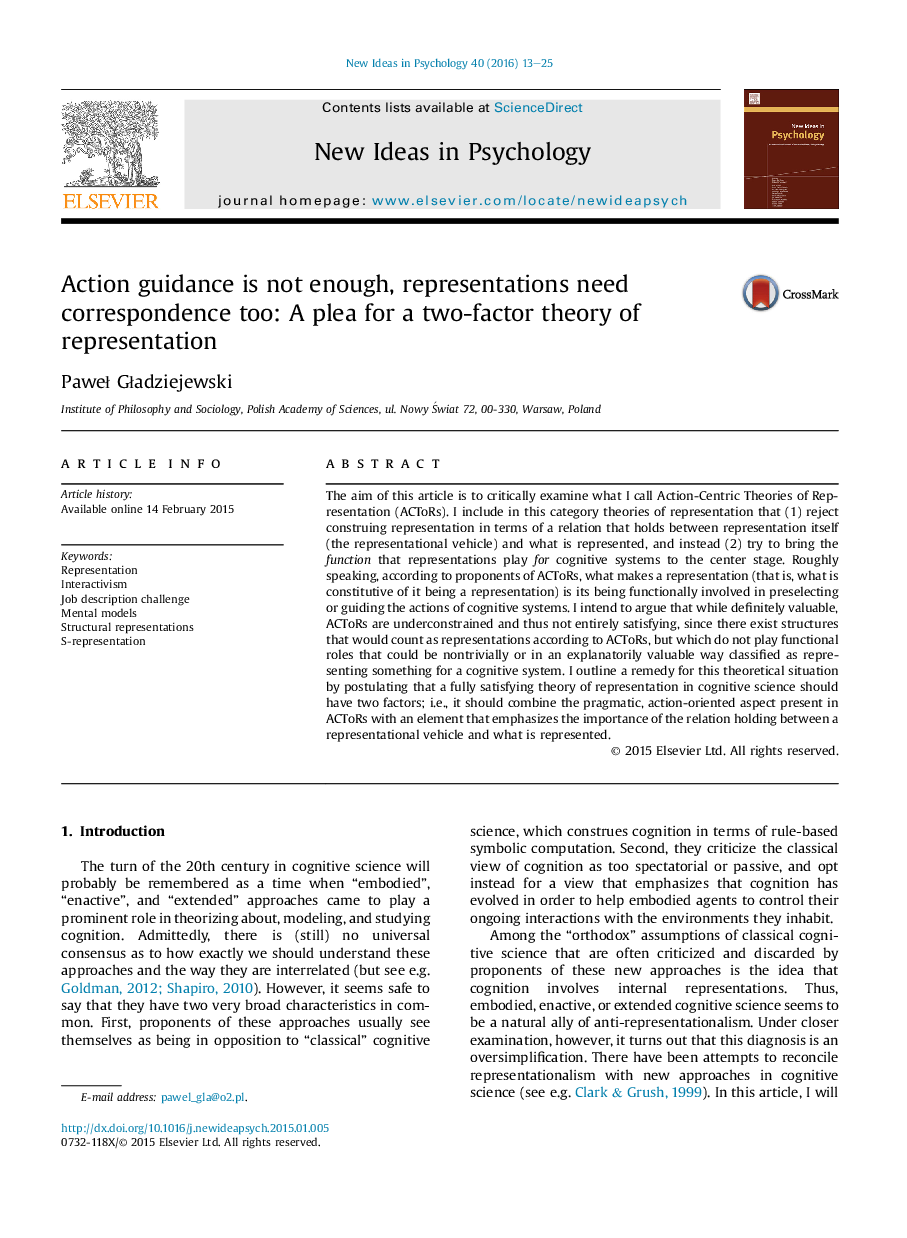| کد مقاله | کد نشریه | سال انتشار | مقاله انگلیسی | نسخه تمام متن |
|---|---|---|---|---|
| 331625 | 544640 | 2016 | 13 صفحه PDF | دانلود رایگان |
The aim of this article is to critically examine what I call Action-Centric Theories of Representation (ACToRs). I include in this category theories of representation that (1) reject construing representation in terms of a relation that holds between representation itself (the representational vehicle) and what is represented, and instead (2) try to bring the function that representations play for cognitive systems to the center stage. Roughly speaking, according to proponents of ACToRs, what makes a representation (that is, what is constitutive of it being a representation) is its being functionally involved in preselecting or guiding the actions of cognitive systems. I intend to argue that while definitely valuable, ACToRs are underconstrained and thus not entirely satisfying, since there exist structures that would count as representations according to ACToRs, but which do not play functional roles that could be nontrivially or in an explanatorily valuable way classified as representing something for a cognitive system. I outline a remedy for this theoretical situation by postulating that a fully satisfying theory of representation in cognitive science should have two factors; i.e., it should combine the pragmatic, action-oriented aspect present in ACToRs with an element that emphasizes the importance of the relation holding between a representational vehicle and what is represented.
Journal: New Ideas in Psychology - Volume 40, Part A, January 2016, Pages 13–25
